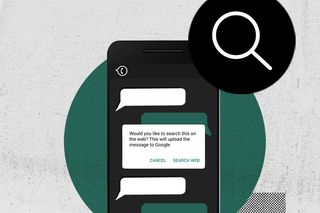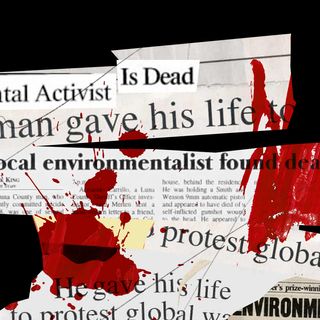
Amid Growing Concerns About Misinformation, WhatsApp Launches Fact‑Check Feature
Passing on the onus of fact-checking onto users, and Google, might not be the the most foolproof way to tackle the infodemic.

WhatsApp has announced a new fact-check feature that will allow users to verify the contents of mass-forwarded messages.
As demonstrated by the company, how this works is: if someone receives a message that has been forwarded through a chain of five or more people, a magnifying glass-icon will appear next to the message, enabling the user to perform a Google-search to verify the text’s authenticity. At present, Whatsapp is rolling out the feature in Brazil, Italy, Ireland, Mexico, Spain, UK, and US — across iOS, Android, and WhatsApp Web.
Even prior to the Covid19 pandemic, WhatsApp has been one of the major platforms through which misinformation is spread in India — it is not only responsible for spreading misinformation during the 2019 elections, but rumors and misinformation spread on the app are also responsible for, at least, 31 deaths due to mob attacks in 2017 and 2018, according to BBC. A 2019 survey of English-language Indian internet-users by Reuters Institute and the University of Oxford had found that 52 percent of the responders got news from WhatsApp. Now, with a 400-million strong user-base that has grown rapidly over the years, tackling misinformation on WhatsApp is imperative, especially amid a health crisis.
Related on The Swaddle:
In a First, Twitter Flags President Trump’s Tweet as Misleading
“We’re not just fighting an epidemic; we’re fighting an infodemic,” Tedros Adhanom Ghebreyesus, the director-general of the WHO, had said at the beginning of the outbreak while addressing the Munich Security conference, and even though many months have passed since, very little appears to have changed. Among a host of initiatives to tackle misinformation, Instagram began removing Covid19-related content not posted by official health organizations in April; Facebook started flagging fake news stories with “Disputed by third party fact-checkers” allowing users to click on a link to “Learn why this is disputed”; the WHO itself joined TikTok; and Twitter introduced a new label for tweets peddling misinformation, which would direct users to a Twitter-curated page, or an external trusted source, containing additional information on the claims made in the tweet.
But, is WhatsApp’s new move actually equipped to tackle the spread of misinformation? For instance, if you receive a text, saying: “Drinking fresh, boiled garlic water will cure Covid19,” and feed the same into Google, the first set of results presents a list of trusted websites saying the claim is false. However, for more obscure myths, for which expert opinions debunking them might not be too easily available even on Google, this could prove to be a fruitless exercise. In addition, given the sheer number of websites actually peddling fake news, looking up a non-factual statement might actually show websites that falsely propagate the misinformation because that corresponds better with the term the user searched for. And, for myths that are particularly pervasive, it’s entirely possible links to pages discussing them will appear higher on Google search results simply because of how popular they are. The search fact-check functionality appears to thrust the burden of verification off of What’s App, onto Google.
Related on The Swaddle:
25% of Most‑Viewed Covid19 YouTube Videos in English Contain Misinformation: Study
So far, WhatsApp has made some attempts to tackle the menace of misinformation in a variety of ways. In early April, it limited the forwarding of viral messages to only one person at a time, bringing it down from the previous limit of five. And, according to WhatsApp, this move helped in curbing the spread of viral messages by 70 percent within a month alone. But, misinformation still continues to spread.
And, with the pandemic continuing to claim lives worldwide, companies must continue the endeavor to devise better, more robust ways to tackle the infodemic. “There seems to be barely an area left untouched by disinformation in relation to the Covid19 crisis, ranging from the origin of the coronavirus, through to unproven prevention and cures, and encompassing responses by governments, companies, celebrities and others. When disinformation is repeated and amplified, including by influential people, the grave danger is that information which is based on truth, ends up having only marginal impact,” Guy Berger, UNESCO Director for Policies and Strategies, had told UN News in April.
Devrupa Rakshit is an Associate Editor at The Swaddle. She is a lawyer by education, a poet by accident, a painter by shaukh, and autistic by birth. You can find her on Instagram @devruparakshit.
Related


Globally, 212 Environmental Activists Were Killed in 2019: Report
